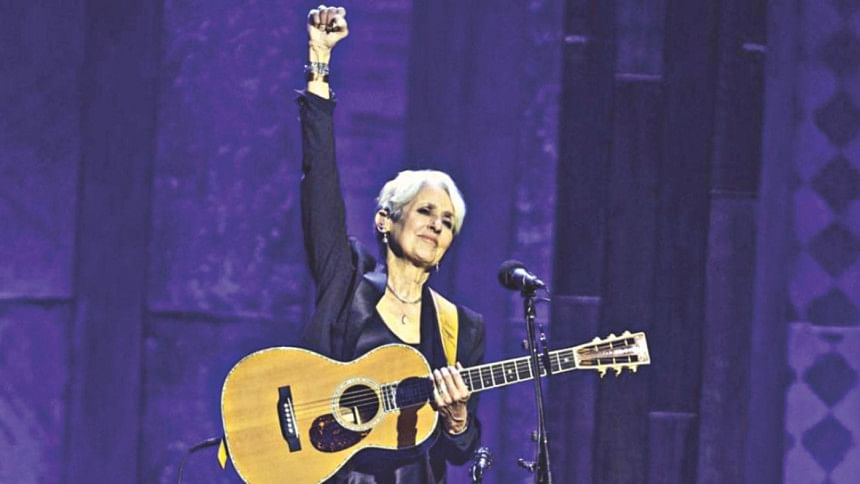At 77, Joan Baez is still America's folk music queen

The incandescently vibrating soprano is worn down nearer a burnished alto after a half century of committed music-making and activism. Yet the takeaway from Joan Baez's latest album – following her well-earned 2017 induction into the Rock and Roll Hall of Fame – is how essential her work remains, according to Will Hermes of Rolling Stone magazine. The album, “Whistle Down The Wind”, released on March 2.
On “The President Sang Amazing Grace”, written by the Philadelphia-bred artist Zoe Mulford, Baez tells the story of a man going into a Southern church and murdering black parishioners – not Birmingham, 1963, a year after Baez became the face of the modern folk movement on Time magazine's cover, but Charleston, 2015, when one might've thought such hatred had become biologically vestigial. Over piano and mournful bowed bass, she describes a President worthy of the moniker, who sang when “no words could say what must be said/For all the living and the dead.”
Baez, 77, didn't write songs for this set, instead curating ones that spoke to her – here, by Tom Waits and Kathleen Brennan, Josh Ritter and others. The mood's reflective and autumnal. Ritter's “Silver Blade”, a fable for the #MeToo era, nods to Baez's early signature “Silver Dagger”. And on “Last Leaf” (from Waits' 2011 LP “Bad as Me”), the singer accurately notes she's “been here since Eisenhower/And I've outlived even he,” affirming that she will be around “through eternity … I'll show up in a song.”
Joan Baez, in her near six-decade performing career, has become an icon of not just American folk music, but of songs of protest and social justice. Known for her own songs and interpretations of other artistes – the Allman Brothers Band, The Beatles, Jackson Browne, Leonard Cohen, Rolling Stones, and Bob Dylan, she has been a vocal activist of all human and civil rights abuses. Her song, “The Story of Bangladesh” (later renamed “The Song of Bangladesh”) was one of the most striking works of music about the Pakistani army's crackdown and genocide on Dhaka in 1971 that sparked our Liberation War.
Source: Rolling Stone

 For all latest news, follow The Daily Star's Google News channel.
For all latest news, follow The Daily Star's Google News channel. 



Comments